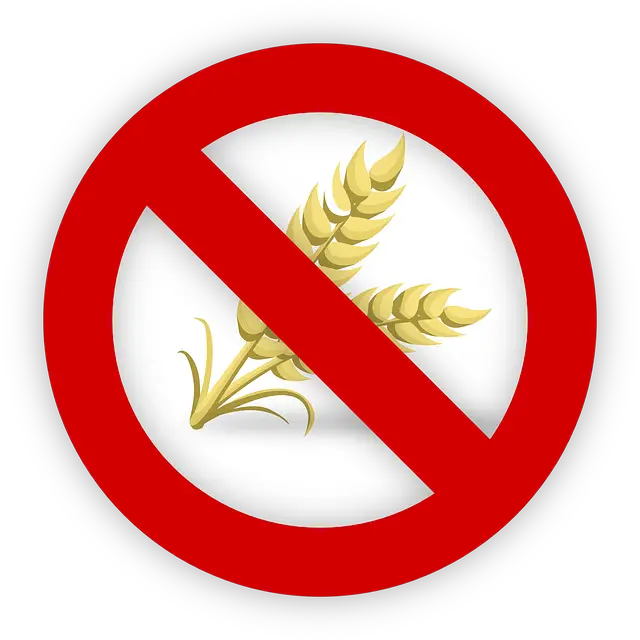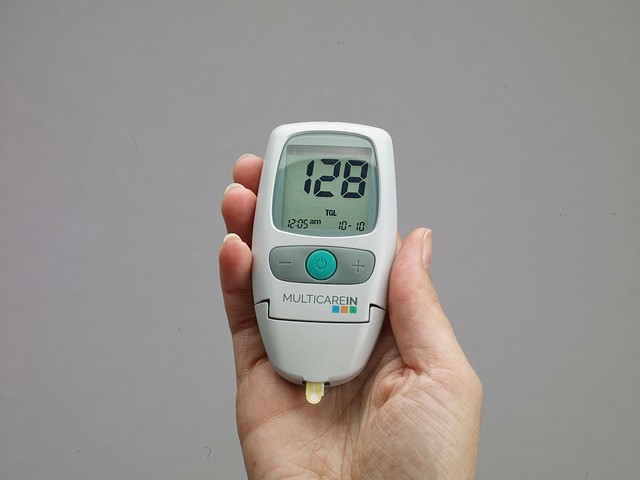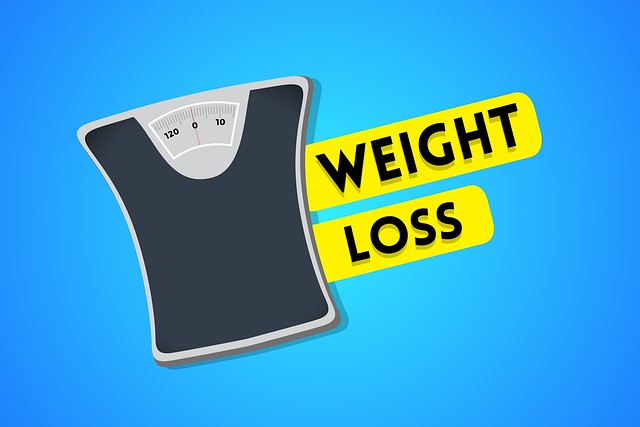Our diet today is associated with high carbohydrate intake considering our processed and convenient food intake. According to the Centers for Disease Control, all the states of the USA have an obesity rate above 20%, while 17 of them have a rate of 35%. Statistics show that more than two-thirds of the adult population in America is obese or overweight, with 42% being obese and 30.7% being overweight.
Overweight and obesity increase one’s risk of developing chronic diseases. Your risk of heart disease, cancer, and diabetes is higher when you are obese or overweight. Research suggests that having a higher BMI, waist-to-hip ratio, and waist circumference has been associated with a higher risk of type 2 diabetes.
This has made it necessary to come up with healthy solutions to address the most underrated chronic disease that is obesity. Obesity is majorly a lifestyle disease, so making changes to some poor lifestyle choices can help with weight management. A proper diet and increased physical activity can help you with weight loss, further lowering your risk of heart disease and other chronic illnesses.
When it comes to nutrition therapy, many have come up that have been said to assist with weight loss. One of the diets is a low carbohydrate diet, whose praises have been sung worldwide having numerous health benefits.
In this article, we will discuss what a low-carb diet is, why you should restrict carbohydrate intake, the examples of low-carb diets, the health benefits of low-carb eating, and when not to follow a low-carb diet. In summary, today’s article will answer the question, is low carbs healthy?
What is a Low Carbohydrate Diet?

Let’s start with low-carb diets basics! What do we mean when we say low carbohydrate diets? A low-carb diet restricts high-carb intake by limiting starchy foods like whole grains, fruits, and vegetables that are high in carbs. On low-carb diets, your calorie intake is mainly from protein and fat.
In addition, low-carb eating limits the intake of processed foods, refined carbs, and sugary foods, high in carbs for weight loss. These foods contain simple sugars that are easily released into your bloodstream, spiking your blood sugar. What you can eat depends on your daily carb limit on your specific low-carbohydrate diet.
Low-carb diets focus on the net carbs consumed rather than the total carbs. Total carbs account for all the carbs you have consumed while net carbs refer to how many carbs you eat that are digestible and absorbable in the body. You will get your digestible carbs by subtracting dietary fiber from total carbs.
Why Should You Restrict Dietary Carbohydrates?

Inflammation is the main cause of disease in the body. A high carb intake increases inflammation, increasing the risk of developing chronic diseases. A diet high in added sugar has been associated with insulin resistance, higher gut permeability, and low-grade inflammation.
A study was done on pre-menopause women with overweight and obesity to investigate the association of fat and carb intake with inflammatory markers. The results showed that total dietary carbs were associated with higher risks of inflammation, while a total fat intake was not associated with higher inflammation.
Inflammation affects one’s metabolic health and can lead to cardiovascular disease, cancer, neurodegenerative disorders, and metabolic syndrome. This is why eating fewer carbs is necessary.
There are some low-carbohydrate diets you can follow for weight loss maintenance.
Low-Carb Eating Plans
Not all diets followed for weight loss are low-carb. Others like intermittent fasting are calorie-restrictive diets but do not focus on macronutrient ratios. Some examples of popular low-carb diets include:
Ketogenic Diet

The ketogenic diet is a low carbohydrate eating pattern that restricts carb intake to 20-50 g of carbs. It is also a high-fat diet that recommends getting 70-80% of your calories from healthy fatty acids.
Your fats should contain moderate saturated fat and high unsaturated fatty acids and medium chain triglyceride content (MCTs). You are required to consume moderate protein from lean meat, chicken, eggs, nuts, and seeds.
With the ketogenic diet, people lose weight by triggering ketosis. Ketosis is the process by which your body breaks down fatty acids for energy in the absence of glucose. How much carbs you will consume depends on the type of keto you are on. The standard keto diet is a very low-carb diet.
This diet can be categorized into dirty and clean keto. Clean ketogenic diets follow the basic rules of standard keto eating that restricts starchy foods and refined carbs. Dirty or lazy keto diets are a less restrictive version of ketogenic diets that does not require tracking of macros like other ketogenic diets.
Paleo Diet

Another low-carb diet that can help you lose weight is the paleo diet which is similar to what the cavemen used to eat. This eating pattern is classified as a low-carb diet because it restricts the intake of carb-rich foods like whole grains, legumes, and dairy, but allows for intake of fruits, vegetables, and meats.
Dukan Diet
This is a high-protein, low-fat diet that recommends for very low-carb intake. This diet follows four steps that help you with losing weight. Dukan is a very low-carb diet, less flexible than the ketogenic diet.
Atkins Diet
The Atkin diet follows low-carb diet plans organized in phases with different daily carb allowances. At the start of the diet, a very low carbohydrate intake of 20 g-50g is recommended, and the intake increases gradually throughout the diet, but limit carbs to 100 g.
South Beach Diet
This diet requires you to eat low carbs in phases, beginning with a very low carbohydrate intake that is gradually increased over time. Initially, whole grains and fruits are off the table since they are highly carbohydrate-rich foods. In the next phases, you can eat carbs, though you introduce them gradually into your low-carbohydrate diet.
Low-Carb Mediterranean Diet

The standard Mediterranean diet is based on the foods eaten in the Mediterranean region. This one allows for more carbs than the low-carb version of the diet. Unlike the other diets mentioned above, the low-carb Mediterranean diet restricts the intake of red meats and emphasizes consuming fatty fish. It substitutes fats like butter with more olive oil.
Now that you know which eating plans are low-carb diets, what foods can you eat in these diets to help you lose weight?
Foods to Eat on a Low-Carb Diet
Before answering, is low carbs healthy, we need to know what low carbohydrate foods we are allowed to eat that can provide us with beneficial nutrients needed for overall health. These foods allowed are either low-carb or contain complex carbs that take longer to digest and are absorbed into the body.
- Low carbohydrate vegetables: green leafy vegetables, cruciferous vegetables, bell peppers, asparagus, and tomatoes. Go for fresh, unprocessed vegetables that have no additives that may add to your carb intake.
- Meat: lean meats like beef, lamb, and chicken
- Eggs
- Fatty fish: salmon, tuna, trout
- Low-carb fruits: berries, watermelons. cantaloupes, lemons
- Fats and oils: olive oil, coconut oil, lard, avocado oil
- Nuts and seeds: macadamia nuts, walnuts, almonds, cashews, sunflower, safflower, chia seeds, pistachios
- High-fat dairy products: cheese, Greek yogurt, butter, heavy cream
- Low-carb sweeteners: monk fruit, Stevia
- Beverages: lime water, black coffee, Americano, Espresso, teas
- Dark chocolate
Foods to Avoid on Low-Carb Diets
When eating low carbs, most fruits, vegetables, and grains are avoided. The following foods should be restricted on low-carb diets:
- Starchy Vegetables: Under-the-ground vegetables like sweet potatoes, Irish potatoes, and yams.
- Sugar, honey, corn syrup, and other sweeteners.
- Processed foods, high in refined carbs.
- Refined grains like white rice.
- Legumes: beans like lentils, chickpeas, black beans, and kidney beans.
- Sugary drinks and beverages
- Low-fat products
- Sweet snacks like baked goods, sweets, candy, and ice cream.
Is Low Carbs Healthy?
Is restricting your carb intake healthy? Many studies have linked low-carb diets to many health benefits. Why should you eat low-carb?
Health Benefits of Low-Carb Diets
Blood Sugar Control

Carbohydrates are the main source of glucose, the body’s primary fuel. Research has shown that when you limit carbs in type 2 diabetes patients, you can regulate blood sugar. One randomized trial investigated the effect of calorie unrestricted low carb, high-fat diets with no intention of weight loss, compared with high-carbohydrate, low-fat diets on type 2 diabetes.
The results showed an improvement in HbA1c and more weight loss in patients on low-carb, high-fat diets compared to those on high-carb, low-fat diets. This study concluded in favor of low-carb, high-fat diets for glycemic control and weight loss in type 2 diabetes.
The American Diabetes Association has endorsed low-carb diets as an option for managing type 2 diabetes. They recommended giving patients with type 2 diabetes-specific medical nutrition therapy to help count carbohydrates and restrict calories.
Simply put, lowering carb consumption in type 2 diabetes is beneficial, no matter what eating pattern you follow. Focus on complex carbs and you will have better control of your blood sugar.
Weight Loss

Is low carbs healthy, you asked? Considering it can help you lose weight and reduces the risks of obesity, then it is. A systematic review and meta-analysis were done to demonstrate and compare the effectiveness of ketogenic diets and low-carb diets on weight control.
The results showed that the ketogenic diets showed the most reduction in body weight compared to other low-carb diets.
Another study investigated whether body weight loss and weight maintenance of low-carb diets depended on high protein or the low-carb component of these diets. The diets used in this study were normal protein, normal carbohydrate (NPNC), normal protein, low carb (NPLC), high protein, normal carb (HPNC), and high protein, low carb (HPLC).
This study’s results suggest that body weight loss experienced on a low-carb diet depends mostly on the high protein component of the diet rather than the low-carb aspect.
Other studies have compared the dietary macronutrient patterns of popular dietary programs for weight loss and found that a low-carb diet is as effective, if not more effective than other diets in the reduction of body fat, fat mass, body fat percentage, waist circumference, and adipose and visceral fat loss.
Good for Your Heart
Low-carb diets promote heart health by reducing cardiovascular risk factors. Blood pressure is one of the risk factors for cardiovascular disease, and a low-carb diet can help you regulate it.
A low-carb diet increases levels of high-density lipoproteins (HDL-cholesterol) and lowers levels of low-density lipoproteins (LDL cholesterol). HDL cholesterol is a good kind of lipid that helps get rid of LDL cholesterol and increases the risk of heart disease. Eating low carbs can also help in lowering triglycerides which contribute to your total cholesterol levels.
Elevated lipid profiles are cardiometabolic risk factors. Managing these levels can help in lowering blood pressure and reducing risks of cardiovascular disease. Blood sugar control can also help regulate serum lipids since excess sugar is stored as fat which can raise your cholesterol levels.
Promotes Gut Health

A low-carb diet has been associated with improved gut function by balancing gut bacteria. One study associated gut microbiota plasticity with weight loss on a low-carb diet.
Gut health is promoted on a low-carb diet because this diet allows for the consumption of prebiotics. Fermented foods like kimchi, sauerkraut, cheeses, and yogurt are food for the probiotics in your gut. Feeding a good microbiome promotes bacteria variability and reduces symptoms of irritable bowel syndrome like gas and bloating. A very low-carb diet has been shown to improve gastroesophageal reflux.
Other benefits of eating low-carb include:
- Manages carb cravings
- Lower risks and disease progression of some cancers
- Increases energy expenditure
- Better brain function
- Improves skin health
- Reduces oxidative stress and inflammation
- Improves mental health symptoms
- Management of PCOS
Cons of A Low Carb Diet
Low-carb diets deprive your body of glucose, pushing it to fat oxidation (ketosis) for energy production. You may experience some side effects of cutting down on carbs because your body is yet to get used to fats as an energy source.
The following symptoms are temporary, only lasting one or two weeks until your body is fat-adapted.
- Skin rash
- Headache
- Fatigue
- Bad breath
- Weakness
- Muscle cramps
- Diarrhea or constipation
Most people call this the keto flu. It is important to mention that diabetic ketoacidosis is not a side effect of low-carb diets. There’s also a big difference between diabetic ketoacidosis and nutritional ketosis. The former is life-threatening and the latter boasting of many benefits to the body.
Is Eating No Carbs Healthy?
Is low carbs healthy? Yes. A low-carb diet restricts carb intake to 20g-100g depending on the type of diet you are on. However, being on a zero-carb diet is not recommended because it can lead to nutrient deficiencies. Dietary fiber is undigestible carbs, so eliminating carbs from your diet may affect your digestion.
You can also miss out on vitamins, minerals, and prebiotics found in these foods. A zero-carb diet could also lead to disordered eating which could affect your mental health. Eating no carbs is not healthy.
How Low is Too Low for Carbs?
Any carb intake below 100-150 g is considered low carb. Anyone within this range can experience great weight loss results. But to reach ketosis, you will have to restrict carb intake to 20 g-50 g. This amount will allow your body to deplete glycogen and proteins and only have fats as an option for energy production.
Anything below 20 g of carbohydrates in a day is too low for carbs. You can stay within the 20-50 g carb limit by consuming low-carb veggies and some fruits.
Can the Body Survive Without Carbs?
Carbohydrates are important for your nerves, heart, and overall health. You will survive without eating carbs but your body will not be at its best. This is because you will be missing out on so many nutrients that these foods have to offer which means you won’t be at 100%.
Carbs have gotten a bad press over time, but they are also necessary for weight maintenance. As long as you are not eating more carbs than your body needs then it is okay to include carbs into your diet.
A low-carb diet is better than a zero-carb diet because it limits carbs low enough for fat burning, while still providing your body with essential nutrients for optimum health. The point is you will survive, but in the absence of complex carbs, you won’t feel great.
What Happens to Your Brain When You Don’t Eat Carbs?
Once glucose levels are low, insulin levels drop, and glucagon is released to convert glycogen to glucose. When your glycogen levels are depleted, your body turns to protein to be broken down to produce glucose through a process known as gluconeogenesis.
When protein levels are low, your body will now use fats through ketosis to produce ketone bodies for energy. Ketones are your brain’s preferred source of fuel. Ketones can be used to meet up to 70% of your brain’s energy needs. The other 30% is still needed for optimum function, meaning your brain cells still need glucose.
Low-carb diets like ketogenic diets provide you with enough proteins for gluconeogenesis. This means you will be making your glucose without necessarily having to consume more carbs. In addition, a low-carb diet’s intake of carbs is enough to provide the glucose for your brain’s optimum function.
Your brain will function if you don’t eat carbs. Studies have shown the benefits of using ketones for the treatment of migraines, Parkinson’s disease, Alzheimer’s disease, and seizures. You may have a mental fog at the start of your keto journey, but that too will clear once you are fat-adapted.
Bottom Line
Is low carbs healthy? Yes, 100%. Reducing how much carbs you consume can be beneficial to your health. Focus on low-carb fruits and non-starchy veggies to stay within your carb limit. A zero-carb diet is not recommended because it can lead to disordered eating and nutrient deficiencies.
Which low-carb diet do you follow? What is your daily carb limit? Which foods do you consume to ensure you stay within your carb restrictions? Let us know in the comment section below!







